TALK ABOUT PRESSURE. Students in a Maymester class at Charleston School of Law had a special visitor — U.S. Rep. Joe Cunningham, at left — to hear oral presentations on public policy proposals on student debt and health care developed during a special Maymester class. Cunningham interacted with students for more than an hour and a half in what law school President Ed Bell called a successful engagement for students interested in federal policy and law.
IN THIS EDITIONFOCUS: Some smart tips to beat the heat
COMMENTARY, Brack: A hotter South Carolina has some steamy policy impacts
IN THE SPOTLIGHT: Titan Termite & Pest Control
PHOTO ESSAY: Scenes from Sullivan’s Island
GOOD NEWS: North Charleston seeks an artist-in-residence
FEEDBACK: Brack nailed it on budget gimmick
RECOMMENDED: Undaunted Courage, by Richard Gergel
MYSTERY PHOTO: This one could be tough
S.C. ENCYCLOPEDIA: Tobacco barns
CALENDAR: Only a few Spoleto days left
FOCUSFOCUS: Some smart tips to beat the heat
By April Sorrow, Jefferson, Ga. | As temperatures climb into the 90s, Jackson Electric Membership Corporation encourages members to reduce energy use where possible to save money. When temperatures outside are high, heat pumps must work overtime to keep the air indoors cool.
Follow these tips to reduce energy use to save money.
Stay cool for less
Nearly half of the electricity used at home goes to condition the air inside. To impact cost, the air conditioner or heat pump needs to run less.
- Set your thermostat to 78 degrees.
- Don’t turn off the air conditioner when you’re gone; instead set it higher. Turning it off makes the system work much harder to overcome the heat built up in the house when you turn it back on.
- Better still, use a programmable thermostat. Set it to bring your home’s temperature down to 78 degrees 30 minutes before you get home.
- Replace air conditioner filters now, then once a month. The dirtier the filter, the harder your heat pump must work.
- Lamps, televisions or anything that creates heat needs to be kept away from the thermostat, as they will impact its accuracy.
- Don’t block vents with furniture or other objects.
- Use ceiling fans when you are in a room to provide additional cooling; they also provide better circulation, which reduces air conditioning costs.
- Trim foliage around the air conditioning condenser to allow adequate airflow around the unit.
Reduce heat inside
- Restrict use of heat-producing appliances like ovens, dishwashers and dryers to the early morning or late evening when temperatures are cooler outdoors.
- Grill outside or use a microwave or toaster oven. A toaster oven uses one-third to one-half as much energy as a regular oven and releases less heat into the home.
- Turn off heat-generating devices when not in use — including lamps, televisions and computers.
- On warm days, close blinds and drapes, especially in south-facing windows which allow in the most heat.
Cut energy use everywhere else
- Activate “sleep” features on computers and office equipment that power down when the equipment is not in use.
- Do full loads when you use clothes washers, dryers and dishwashers.
- Use dimmers, timers and motion detectors on indoor and outdoor lighting.
- Replace lightbulbs with LED bulbs, which burn longer and produce less heat.
Plan long-term
- Plant deciduous trees to shade the south side of your house.
- Insulate floors, walls and attics to keep cooler in summer and warmer in winter.
- Get your air conditioner tuned-up. Consider a maintenance contract that provides a checkup twice a year, prior to peak cooling and heating seasons.
- If your HVAC unit is 10 years old or more, consider replacing it. New models are more efficient and may lower your electric bill. Jackson EMC offers rebates and low-interest loans for qualifying members. More details about these programs are available at com/rebates.
For more money-saving tips, check out the list at www.jacksonemc.com/waystosave.
- This article was republished with permission of our sister publication, GwinnettForum.com.
- Have a comment? Send to: editor@charlestoncurrents.com
BRACK: A hotter South Carolina has some steamy policy impacts
By Andy Brack, editor and publisher | Regardless of whether you are a climate change denier or someone who believes that science shows the globe is warming, there’s one thing we can all agree on: It’s been hot. Real hot.
 Summer’s annual blast furnace of high heat and humidity came earlier than expected this year as the middle of the country dealt with lots of flooding and a whole bunch of freaky tornadoes.
Summer’s annual blast furnace of high heat and humidity came earlier than expected this year as the middle of the country dealt with lots of flooding and a whole bunch of freaky tornadoes.
In South Carolina, lawns are browning, not greening. Crops are struggling. Officials say a third of the state is experiencing some kind of drought. They’re warning people that drought conditions can lead to wildfires and are strongly discouraging outdoor burning.
In other words, this heat is impacting how we live. One woman this week blamed heat for the larger number of cars on the side of the road with flat tires. Another recently bought a four-wheel-drive truck, instead of a car, to deal with increasing flooding in the Lowcountry.
And people are staying inside more. Just about everyone is saying quiet prayers to a guy whose name they don’t know – Willis Carrier – but whose invention they couldn’t live without – the modern air conditioner.
All of this heat seems to be coming sooner and staying around longer. The Union of Concerned Scientists projects if carbon emissions into the atmosphere continue to increase, we’ll have more hot days, particularly in the Southeast. In coming years, according to a 2018 report, the Southeast could have 40 to 50 additional days of extreme heat where temperatures are over 90 degrees Fahrenheit. Yikes.
If you are someone who thinks long-term and about broader impacts, it’s natural to wonder how expanding summer heat may affect how we live in South Carolina over time.
Water. The Palmetto State has been blessed with lots of good, clean water. But with more development on the way and more people sucking down gallons, the water table will be impacted. More heat likely will cause more drought, which will lower the water table, too. As such, the state really needs a revamped, modern water policy that outlines how state waters can be used collaboratively.
Crops. With more heat and drought, agriculture will be affected. We’ve always been able to grow lots of food, although the vast majority is sold to out-of-state interests. It might be a good idea for South Carolina to focus more on feeding South Carolinians and embracing the “buy local” movement in new ways. This could create new streams of revenues for remaining farmers and, perhaps, embolden more people to enter the sagging industry.
Infrastructure. One impact of a warmer globe is sea-level rise. That means communities in the Lowcountry (it’s called “low” for a reason) will have to budget more to deal with flooding and keeping the sea at bay. In Charleston, for example, dealing with high tides that soak streets more often has become a political issue that is impacting local races.
Power. If it’s hotter and people are cranking the air conditioning more often, they’re probably using more power, the use of which tends to cause more air pollution. From a policy perspective, that suggests sun-rich South Carolina should be investing in more green power, such as solar or wind, to generate what people need to stay cool. And that means passing more bills, such as a residential solar measure recently approved by the General Assembly to expand solar usage by allowing more people to sell extra power to utilities.
Disease and animals. Hotter weather for longer spells means there’s more potential for negative health impacts, such as more asthma, and the spread of more diseases, particularly mosquito-borne maladies. Forestry, one of the state’s top products, may be threatened as more bad insects thrive. Some species will move north for cooler climes and some will die, reducing biodiversity. Remember recent stories of a manatee or two in South Carolina waters? That’s certainly not normal.
South Carolina legislators and policy wonks need to start thinking long and hard about how to harden our infrastructure systems and prepare for a hotter state. Over time, expanding heat is going to cost more money, but getting ready now will save money over time.
Andy Brack’s new book, “We Can Do Better, South Carolina,” is now available for $14.99 in paperback via Amazon.
- Have a comment? Send to: editor@charlestoncurrents.com
SPOTLIGHT: Titan Termite & Pest Control
 Titan Termite & Pest Control, headquartered in Charleston, is a full service residential, commercial and industrial pest control company serving South Carolina. It is a third-generation, family-owned company known for outstanding customer service. Each associate is dedicated to the customer and exhibits integrity and respect. Titan’s pest professionals can assist your commercial or residential location with general pest control, termite inspections, termite control, flea control, bed bug extermination, ant control and more. Titan Termite and Pest Control continues to set high standards so that its customers receive the best possible service. Titan’s technicians are knowledgeable of the latest in pest control techniques, which enables the company to customize effective treatment plans for every situation.
Titan Termite & Pest Control, headquartered in Charleston, is a full service residential, commercial and industrial pest control company serving South Carolina. It is a third-generation, family-owned company known for outstanding customer service. Each associate is dedicated to the customer and exhibits integrity and respect. Titan’s pest professionals can assist your commercial or residential location with general pest control, termite inspections, termite control, flea control, bed bug extermination, ant control and more. Titan Termite and Pest Control continues to set high standards so that its customers receive the best possible service. Titan’s technicians are knowledgeable of the latest in pest control techniques, which enables the company to customize effective treatment plans for every situation.
- Free estimate: 888-794-5603.
- Contact Titan online.
- To meet all of our underwriters, click here.
Scenes from Sullivan’s Island
By Rob Byko, contributing photographer | There’s a diversity of subject matter from Sullivan’s Island in these scenes shot over the last few years. Enjoy!
- Local photographer Rob Byko is a Realtor with ERA Wilder Realty Inc. Learn more here. Have a comment? Send to: editor@charlestoncurrents.com
North Charleston seeks new artist-in-residence
Staff reports | The City of North Charleston is seeking a new artist-in-residence for the fiscal year beginning July 1.
![]() The city’s artist-in-residence serves as a key resource for the department’s outreach programs, especially in the area of art instruction. The selected visual artist will share his or her unique skills, talents and experiences by providing free visual art residencies, workshops and demonstrations in public schools, recreation facilities and community gathering spaces in North Charleston. Local visual artists with a willingness to share their talents and an ability to work with students of all ages are invited to apply for the part-time, contracted position by Friday, June 28, 2019.
The city’s artist-in-residence serves as a key resource for the department’s outreach programs, especially in the area of art instruction. The selected visual artist will share his or her unique skills, talents and experiences by providing free visual art residencies, workshops and demonstrations in public schools, recreation facilities and community gathering spaces in North Charleston. Local visual artists with a willingness to share their talents and an ability to work with students of all ages are invited to apply for the part-time, contracted position by Friday, June 28, 2019.
The new artist-in-residence will have an exhibition of work at the North Charleston City Gallery from December 2019 through January 2020. Additional exhibition opportunities are available during the North Charleston Arts Fest in May. The successful applicant will be paid up to $7,500 for up to 300 hours of work. Interested artists should submit quality photographs or digital images of their work along with a current résumé or CV reflecting their exhibition and teaching experience by 5 p.m. June 28. Application materials may be emailed to kyeadon@northcharleston.org or mailed to the attention of Krystal Yeadon at City of North Charleston Cultural Arts Department, PO Box 190016, North Charleston, SC, 29419-9016. More info: Visit the Arts & Culture section of www.northcharleston.org or call 843-740-5854.
In other Good News:
New bookstore in Goose Creek. Turning Page Bookshop opened in Goose Creek over the weekend becoming one of the Charleston area’s few independent bookstores and the second African American-owned bookstore in the state. VaLinda Miller, who previously owned The Booksmith in Seneca, moved the business closer to her Goose Creek home. Miller said she was sad to leave Seneca behind, but is excited for the new adventure.
“Goose Creek is growing fast, and I want to be part of the mixtures of imagination by showing the world that we are more than readers and support our small businesses,” she said. “We are what a diverse community can do and do well.” The bookstore will be selling new books, including Bibles, Christian fiction, African-American books and Young Adult books. They will be serving coffee and will provide a relaxing space for book lovers and others a place to read books. Visit at 216 St. James Avenue, Goose Creek.
A Magnolia first. Chinese lanterns will glow for four months beginning Nov. 15 at Magnolia Plantation and Gardens, illuminating America’s oldest garden at night for the first time in its history, according to a press release. Magnolia Plantation and Gardens has partnered with the Zigong Lantern Group in China to present “Lights of Magnolia: Reflections of a Cultural Exchange.” The lantern festival, the first ever at a public garden in North America, places Magnolia in a position to play a prominent role in supporting Charleston’s tourism traffic, Tom Johnson, the garden’s executive director, said. “We are expecting record-breaking attendance for this visually stimulating display of stunning Chinese art that will glow in the night,” he said. “Magnolia is constantly looking for opportunities to enhance the garden experience for our visitors, and I believe we’ve found a unique opportunity with the Zigong Lantern Group.”
Hat tip. Congratulations for former College of Charleston President George Benson, was recently presented with the Albert Nelson Marquis Lifetime Achievement Award by Marquis Who’s Who. Benson is a professor of decision sciences in the college’s Department of Supply Chain and Information Management and served as the college’s president from 2007 to 2014.
Anti-teen pregnancy group gathers June 4-6. The S.C. Campaign to Prevent Teen Pregnancy is hosting its 20th Annual Teen Pregnancy Prevention Conference June 4 to June 6 at the North Charleston Marriott. Keynote and plenary speakers include Judge Glenda Hatchett, a TV personality and successful attorney, and Dr. Elizabeth Schroeder, an award-winning educator, trainer and author in the areas of sexuality education pedagogy. Learn more here.
Entertainment industry flees red-state laws. South Carolina has gained a Netflix show after the streaming media giant balked at North Carolina’s transgender bathroom policy. Now, as other entertainment looks at leaving Georgia over its abortion restrictions, South Carolina is looking at enacting similar legislation. Read the story in The Charleston City Paper.
Billions lost. South Carolina is missing out on up to $70 billion from economic activity related to production of offshore wind power, according to the new issue of sister publication, Statehouse Report. Correspondent Lindsay Street writes “South Carolina tops a national list for potential in an emerging industry that could bring in thousands of jobs and provide cheap electricity, but developers aren’t lining up.” Read the full story.
FEEDBACKBrack nailed it on a budget gimmick
To the editor:
![]() Your column in the Greenwood Index Journal is a great public service! I try not to ever miss reading it. You offer essential information about our state politics in a non-partisan way which is incredibly refreshing!
Your column in the Greenwood Index Journal is a great public service! I try not to ever miss reading it. You offer essential information about our state politics in a non-partisan way which is incredibly refreshing!
I particularly liked your candid comments on expenditures. I totally agree with your term “gimmick” to describe the $50 being paid to each taxpayer. Sixty-seven million dollars would not go very far toward fully funding public education, but the need is so dire practically every penny would help.
Thank you so very much for shining an objective light on the actions of our State Legislators each week!
— Paula Taylor, Greenwood, S.C.
Send us your thoughts
We’d love to get your impact in one or more ways:
Send us a letter: We love hearing from readers. Comments are limited to 250 words or less. Please include your name and contact information. Send your letters to: editor@charlestoncurrents.com. | Read our feedback policy.
Tell us what you love about the Lowcountry. Send a short comment – 100 words to 150 words – that describes something you really enjoy about the Lowcountry. It can be big or small. It can be a place, a thing or something you see. It might the bakery where you get a morning croissant or a business or government entity doing a good job. We’ll highlight your entry in a coming issue of Charleston Currents. We look forward to hearing from you.
RECOMMENDEDUnexampled Courage by Richard Gergel
![]() By Elliott Brack, GwinnettForum.com | If you want a book that goes behind the scene to explain President Truman’s desegregation of the military, and at the same time shows how a South Carolina judge was the key person in killing the “separate but equal” idea of education, this is the book for you.
By Elliott Brack, GwinnettForum.com | If you want a book that goes behind the scene to explain President Truman’s desegregation of the military, and at the same time shows how a South Carolina judge was the key person in killing the “separate but equal” idea of education, this is the book for you.
The key person is Judge J. Waties Waring, a federal District Judge in Charleston, with the book written by Richard Gergel, a judge who is the successor to that seat. The author has the touch that makes a history read like a can’t-put-down novel. You’ll learn that all this started when a returning Army sergeant, a black man, a few hours after his discharge when in uniform, had his eyes put out by a South Carolina city policeman. You’ll learn that sometimes justice does not prevail. But you will come away far more enlightened about our South and its way of life.
The full title is UNEXAMPLED COURAGE, the Blinding of Sgt. Isaac Woodard and the Awakening of President Harry S Truman and Judge J. Waties Waring.
- Have a book review or restaurant recommendation? Send to: editor@charlestoncurrents.com
This one could be tough
There’s a pretty good clue in this photo that will suggest where it was taken, but if you don’t see it, this mystery photo could be pretty tough. Send your guess to editor@charlestoncurrents.com. And don’t forget to include your name and the town in which you live.
Our previous Mystery Photo
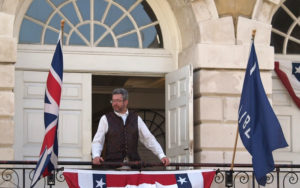 Our May 27 mystery, “This mystery should be pretty easy,” showed a guy in Revolutionary War-era garb outside of the Old Exchange on East Bay Street at Broad Street in downtown Charleston.
Our May 27 mystery, “This mystery should be pretty easy,” showed a guy in Revolutionary War-era garb outside of the Old Exchange on East Bay Street at Broad Street in downtown Charleston.
We thought it would be pretty easy, but fewer readers correctly identified the photo than we expected. Congratulations to Bud Ferillo of Columbia; David Brown of Daniel Island; George Graf of Palmyra, Va.; Marnie Huger of Richmond, Va.; Deborah Getter of Johns Island; and Bill Segars of Hartsville.
Huger, a Charleston native, shared: “South Carolina declared independence from Great Britain from the steps of the Exchange on March 28, 1776. The local S.C. Patriots, led by Gen. William Moultrie, walled up 10,000 pounds of gunpowder in a secret chamber created by bricking in a false exterior wall. This was never discovered by the British during its occupation 1780-1782.”
Getter added the Eliza Lucas Pinckney chapter of the Daughters of the American Revolution still meet in the building on the second Sunday of every month from September through May.
- Send us a mystery: If you have a photo that you believe will stump readers, send it along (but make sure to tell us what it is because it may stump us too!) Send it along to editor@charlestoncurrents.com.
HISTORY: Tobacco barns
S.C. Encyclopedia | Tobacco curing barns have helped to define the Pee Dee landscape since the 1880s. Unlike in Burley-tobacco regions such as Kentucky, where ventilated air-drying sheds were used, in South Carolina bright leaf tobacco was flue-cured by artificial heat. Thus, curing barns were tightly constructed to maintain high temperatures during the four- to five-day curing process.
A brick furnace circulated heat through a network of stove pipes (flues) that ran parallel to and a few inches above the floor. Tobacco leaves were strung on wooden sticks and hung overhead on rows of tier poles. Early tobacco barns were generally sixteen feet square and twenty feet high with four “rooms” of tier poles. As crop yields increased in the 1940s and 1950s, twenty-foot square, five-room barns became the norm. Typically, the outside walls were skirted by a shed roof that sheltered hanging and stringing.
Curing-barn architecture evolved slowly. Until the 1940s most farmers built their barns from homegrown materials: stout logs chinked with clay and roofed with hand-hewn shingles. Tier poles were fashioned from slender pine saplings. Later, farmers purchased dressed lumber and covered it with store-bought asphalt sheathing. Handmade shingles bowed to tin roofing. In the 1950s and 1960s a few farmers invested in cement block construction. Curing fuels and technologies also evolved. At first, tobacco growers fueled their brick furnaces with firewood cut from their own forests. By the 1950s, however, kerosene and propane gas burners were commonplace in the Pee Dee.
As tobacco culture mechanized in the late 1960s, all-metal, rectangular “bulk” barns began replacing traditional barns. Bulk curing eliminated several labor-intensive tasks and cured more leaves with less fuel. Automated controls greatly simplified curing. By 1990 essentially all of the state’s tobacco crop was bulk cured. At century’s end, a few examples of wooden tobacco barns were being preserved as heritage assets in the Pee Dee.
— Excerpted from an entry by Eldred E. Prince Jr. This entry may not have been updated since 2006. To read more about this or 2,000 other entries about South Carolina, check out The South Carolina Encyclopedia, published in 2006 by USC Press. (Information used by permission.)
ON THE CALENDARCALENDAR: Only a few Spoleto days left!
Staff reports | You’ve got six solid days left to enjoy Spoleto Festival USA and its citified companion, Piccolo Spoleto. Yes, there are a lot of people in town, but there’s a lot of fun to be had, too.
We saw a resplendent performance of Aaron Copland’s Appalachian Spring by 13 musicians in the Dock Street Theatre during a chamber music performance. We’ve heard great talk about Salome and other performances. Go on — get out of the house and enjoy.
![]() Piccolo Spoleto: Through June 9, all over Charleston. There’s more than 500 events during the city’s 17-day companion festival to Spoleto Festival USA. Check out our earlier coverage, which has lots of ideas and links for just the right thing for you to do. Still stymied? Find a free day on your calendar and check out the Piccolo calendar for something that’s on. Be spontaneous. You’ll have a great time. More.
Piccolo Spoleto: Through June 9, all over Charleston. There’s more than 500 events during the city’s 17-day companion festival to Spoleto Festival USA. Check out our earlier coverage, which has lots of ideas and links for just the right thing for you to do. Still stymied? Find a free day on your calendar and check out the Piccolo calendar for something that’s on. Be spontaneous. You’ll have a great time. More.
Spoleto Festival USA: Through June 9, all over the Charleston area. The sheer quality of the music, art and culture in Charleston for 17 days is mind-blowing. These shows cost more than the sister Piccolo Festival, but hey, this is the main draw that brings in people from all over the world. More: SpoletoFestivalUSA.org.
Nighttime at Charleston Museum: 6 p.m. to 8 p.m., June 7, Charleston Museum, 360 Meeting St., Charleston. This event features costumed reenactors, special displays, an exciting scavenger hunt, crafts, and fun demonstrations. The lights will be low, so bring your flashlight! Food and beverages are included in the ticket price and provided by our sponsors. Nighttime at the Museum is appropriate for all ages. Tickets are $5-$10 for children (members/non-members) and $15-$25 for adults. More information.
Tea room at Grace: 11:30 a.m. to 2 p.m. Through June 8 (except June 2). Lunch and a gift shop. See menu here. Grace Church Cathedral. 98 Wentworth St., Charleston.
New library opens: 10 a.m., June 10, 1400 Carolina Park Blvd., Mount Pleasant. The new 40,000-square-foot Wando Mount Pleasant Library will open at 10 a.m., preceded by a ribbon-cutting ceremony at 9 a.m. with myriad public officials. Learn more about the new library, the first of five being opened following a $108.5 million bond issue approved in 2014 by voters.
Events at the Gaillard. Check out these awesome coming events at the Charleston Gaillard Center, 95 Calhoun St., Charleston:
Songs of America: Jon Meacham and Tim McGraw: 7:30 p.m., June 11. Join Grammy Award-winning Tim McGraw and Pulitzer Prize-winning author Jon Meacham as they explore American history through music. Tickets are $65 to $350. More.
Shear Madness: Shows from June 13 to June 30, West Ashley Theatre Center, 1401 Sam Rittenberg Center, West Ashley. Charleston Stage’s first show produced at its new Pearl Theatre will be the hilarious, award-winning Shear Madness, longest-running play in American theatre history. Learn more and get tickets here.
Presidential candidates here for TV: The Black Economic Alliance will host a presidential forum noon to 4 p.m. June 15 for some Democratic candidates at the Charleston Music Hall. Tickets required, but free. To be aired on BET.
Hat Day in the Sun: 11:30 a.m., June 21, Marion Square, King Street, Charleston. Once again, the Hat Ladies will be distributing FREE hats to men, women and children to emphasize the importance of hat wearing for sun protection. They’ll hand out hats as long as supplies last; one hat per customer. More: www.hatladies.org.
TheSkimm Night Out. 7:30 p.m., June 25. The founders of theSkimm are coming to your city for a fun night out, full of empowering conversation, networking, cheersing, and more to celebrate their new book, How to Skimm Your Life. Tickets are $48 to $150. More.
Food truck Friday: 5 p.m. to 8 p.m., June 28, The Ponds, 326 Hundred Oak Parkway, Summerville. You can enjoy food and popular gatherings with entertainment from Ocean Drive and several food trucks, including Smokin’ Gringos, Happy Thai, Greekin Out, Krystyna’s, Holy City Cupcakes, Booze Pops, and Pelican Sno Balls. It is recommended that attendees bring chairs and blankets. Coolers and BYOB are allowed.
Early morning bird walks at Caw Caw: 8:30 a.m. every Wednesday and Saturday, Caw Caw Interpretive Center, Ravenel. You can learn about habitats and birds, butterflies and other organisms in this two-hour session. Registration not required, but participants are to be 15 and up. $10 per person or free to Gold Pass holders. More: http://www.CharlestonCountyParks.com.
AREA MARKETS
![]() TUESDAYS. The Mount Pleasant Farmers Market is every Tuesday from 3:30 p.m. to 7 p.m. at the market pavilion at Moultrie Middle School, 645 Coleman Blvd., Mount Pleasant. Free parking. Lots of activities. More info.
TUESDAYS. The Mount Pleasant Farmers Market is every Tuesday from 3:30 p.m. to 7 p.m. at the market pavilion at Moultrie Middle School, 645 Coleman Blvd., Mount Pleasant. Free parking. Lots of activities. More info.
WEDNESDAYS. The West Ashley Farmers Market is every Wednesday from 3 p.m. to 7 p.m. in Ackerman Park off Sycamore Avenue in West Ashley. The last week of the market will be the first week of October. More.
FRIDAYS/SATURDAYS: Night Market. Every Friday and Saturday from 6:30 p.m. to 10:30 p.m. for the rest of the year, you can shop with 108 vendors, including artists and craftsmen, at the night market on Market Street between East Bay and Church streets. It’s more than four blocks of local shopping and fun. Free.
SATURDAYS: Johns Island Farmers Market operates each Saturday from 9:30 a.m. to 1:30 p.m. year-round with more than 50 local farmers and vendors, food trucks, music and more. The market is located on the campus of Charleston Collegiate School, 2024 Academy Road, Johns Island
SATURDAYS: The Charleston Farmers Market is opens 8 a.m. to 2 p.m. in Marion Square each Saturday through Nov. 30. More info.
- If you have an event to list on our calendar, please send it to feedback@charlestoncurrents.com for consideration. The calendar is updated weekly on Mondays.
If you like what you’ve been reading, how about considering a contribution so that we can continue to providing you with good news about Charleston and the Lowcountry. Interested? Just click the image below.
NOW AVAILABLENow out in paperbrack, err, paperback
 We Can Do Better, South Carolina! offers incisive commentaries by editor and publisher Andy Brack on the American South, the common good and interesting South Carolina leaders, such as former U.S. Sen. Fritz Hollings, civil rights advocate Septima Clark, former S.C. Gov. David Beasley and more. There also are discussions on civil rights struggles with which the Palmetto State continues to grapple. as well as commentaries on politics, governments, the hangovers of South Carolina’s past and her future opportunities.
We Can Do Better, South Carolina! offers incisive commentaries by editor and publisher Andy Brack on the American South, the common good and interesting South Carolina leaders, such as former U.S. Sen. Fritz Hollings, civil rights advocate Septima Clark, former S.C. Gov. David Beasley and more. There also are discussions on civil rights struggles with which the Palmetto State continues to grapple. as well as commentaries on politics, governments, the hangovers of South Carolina’s past and her future opportunities.
We Can Do Better, South Carolina! is available for $14.99 in paperback or as a Kindle book for $7.99. Click here to purchase your copy. A paperback version will be ready for order soon.
- If you have a comment or questions about the book, please let us know at: editor@charlestoncurrents.com
OUR UNDERWRITERS
Charleston Currents is an underwriter-supported weekly online journal of good news about the Charleston area and Lowcountry of South Carolina.
- Meet our underwriters
- To learn more about how your organization or business can benefit, click here to contact us. Or give us a holler on the phone at: 843.670.3996.
OUR TEAM
Charleston Currents offers insightful community comment and good news on events each week. It cuts through the information clutter to offer the best of what’s happening locally.
- Mailing address: O. Box. 22261 | Charleston, SC 29413
- Phone: 670.3996
Charleston Currents is provided to you weekly by:
- Editor and publisher: Andy Brack, 843.670.3996
- Contributing editor, common good, Fred Palm
- Contributing editor, money: Kyra Morris
- Contributing editor, Palmetto Poem: Marjory Wentworth
- Contributing editor, real estate: Digit Matheny
- Contributing editor, AT: Jerry Adams
- Contributing photographer: Rob Byko
SUBSCRIBE FOR FREE
Subscriptions to Charleston Currents are free.
- Click here to subscribe.
- We don’t want to lose you as a reader of Charleston Currents, but if you must unsubscribe, you will have to do it through the email edition you receive. Just go to the bottom of any of your weekly newsletters and click the “unsubscribe” function. If that doesn’t work, please send us an email with the word “unsubscribe” in the subject line.
- © 2008-2019, Statehouse Report, LLC. All rights reserved. Charleston Currents is published every Monday by Statehouse Report LLC, PO Box 22261, Charleston, SC 29413.



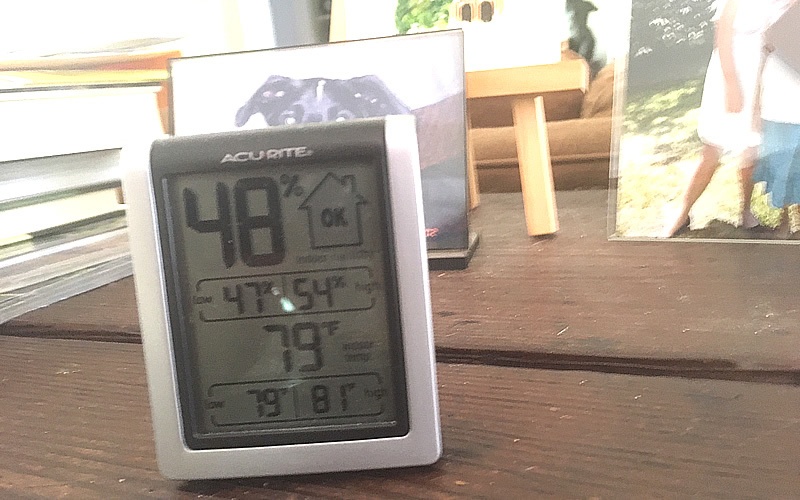







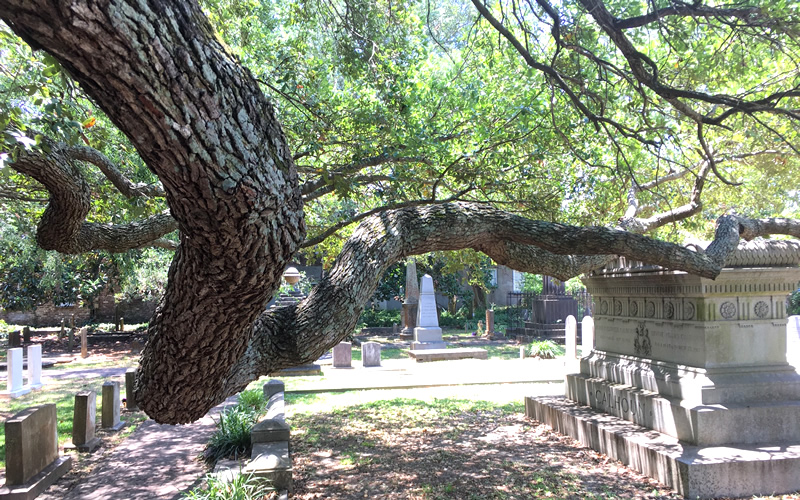
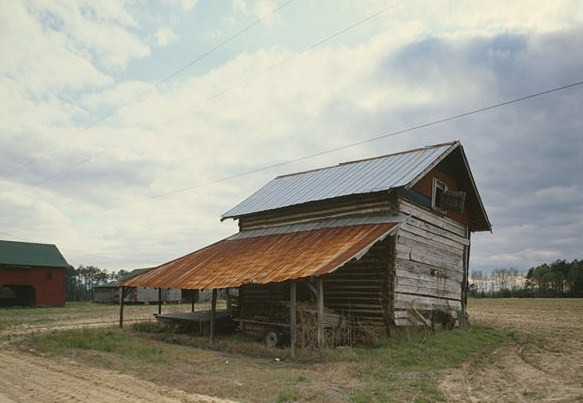
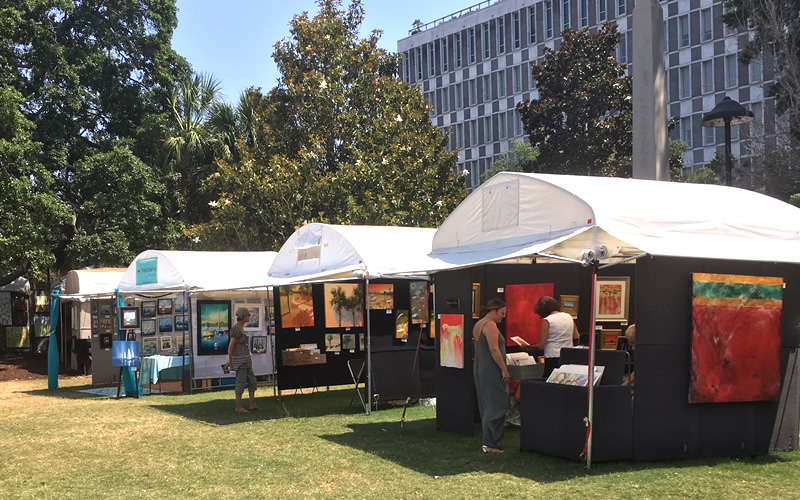

 We Can Do Better, South Carolina!
We Can Do Better, South Carolina!
























